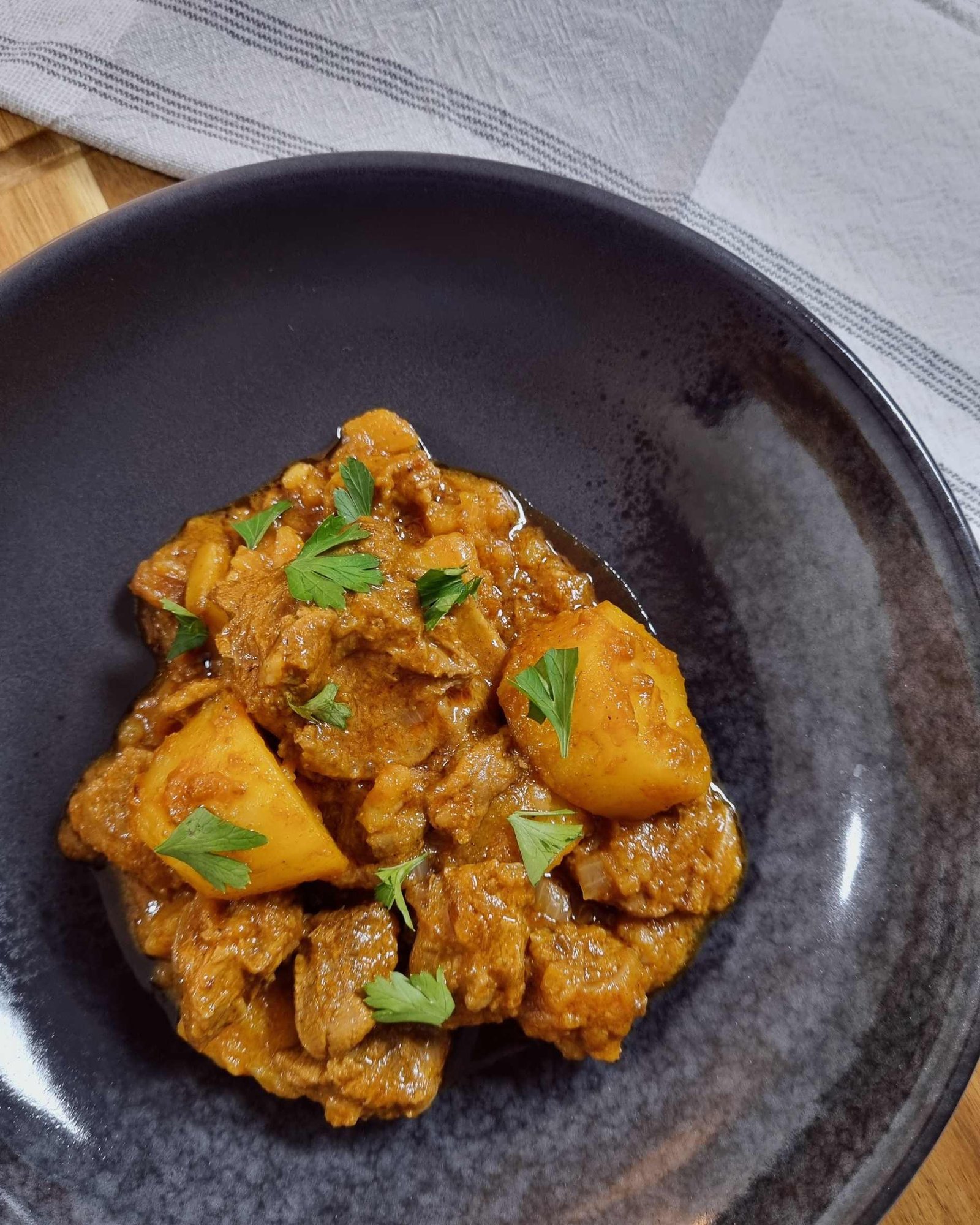
Newsletter Subscribe
Enter your email address below and subscribe to our newsletter

Enter your email address below and subscribe to our newsletter
This Lamb curry is a perfect harmony between fragrant spices and gravy. In India, there are many ways to cook lamb curry. Everything from Rogan Josh to fiery Karahi Gosht is crafted with a specially selected blend of spices. Curry is a profoundly complex experience, and every household has its variation, using different quantities of spices. For this reason, no two lamb curries are ever quite the same.
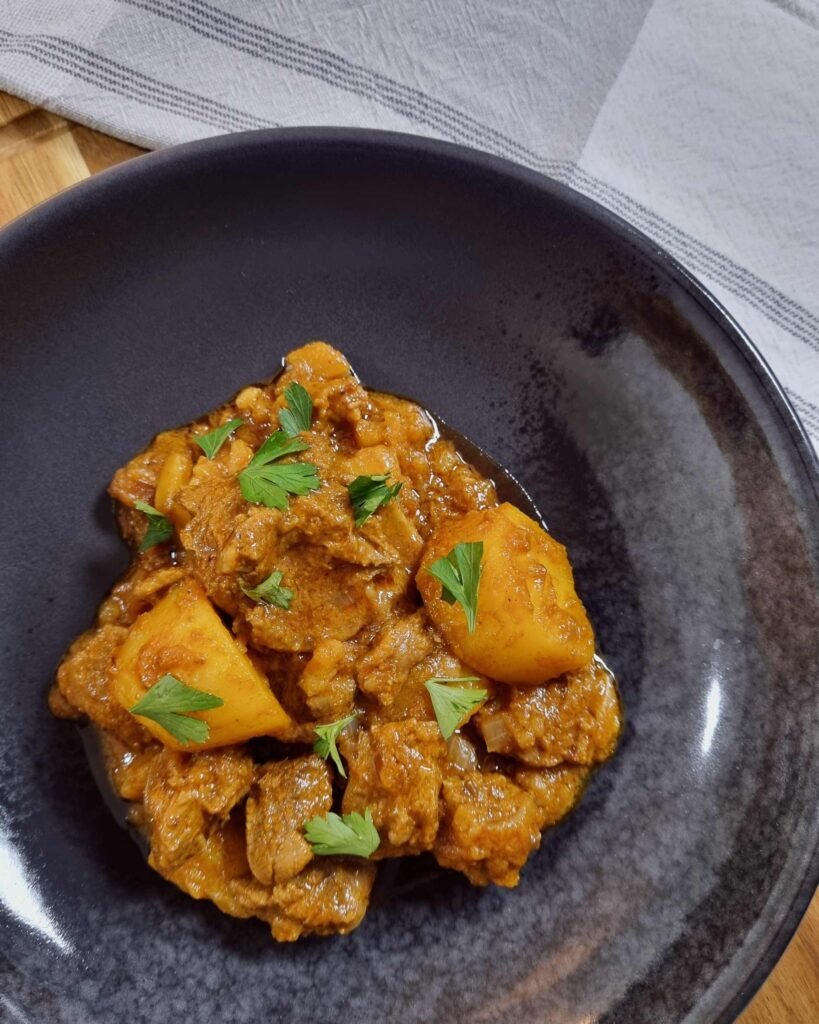
Lamb has been eaten around the world for thousands of years. It is most popular in South Asia, the Middle East, and the Mediterranean. In Ancient India, the process of cooking Lamb started with an earthen pot placed in clay ovens. One can imagine the spicy fragrance of the Lamb wafting through the air and spreading throughout the home. The fire would add a slightly smoky taste to the slow-cooked Lamb and create a unique play on flavours.
Lamb meat, Potatoes, Onions, Garlic cloves, Tomato, Tomato paste, Ginger and Garlic paste, Salt, Garam masala, Turmeric powder, Coriander powder, Chili powder, Cinnamon powder, Nutmeg powder, Cumin powder, Cooking oil, Water.
When it comes to selecting the best part of the lamb meat, choose lamb leg, shoulder, shank, or knuckles to add to the richness of the curry. The aromatic base that will shape the gravy comprises onions, garlic, and ginger. These components form the foundation of the curry.
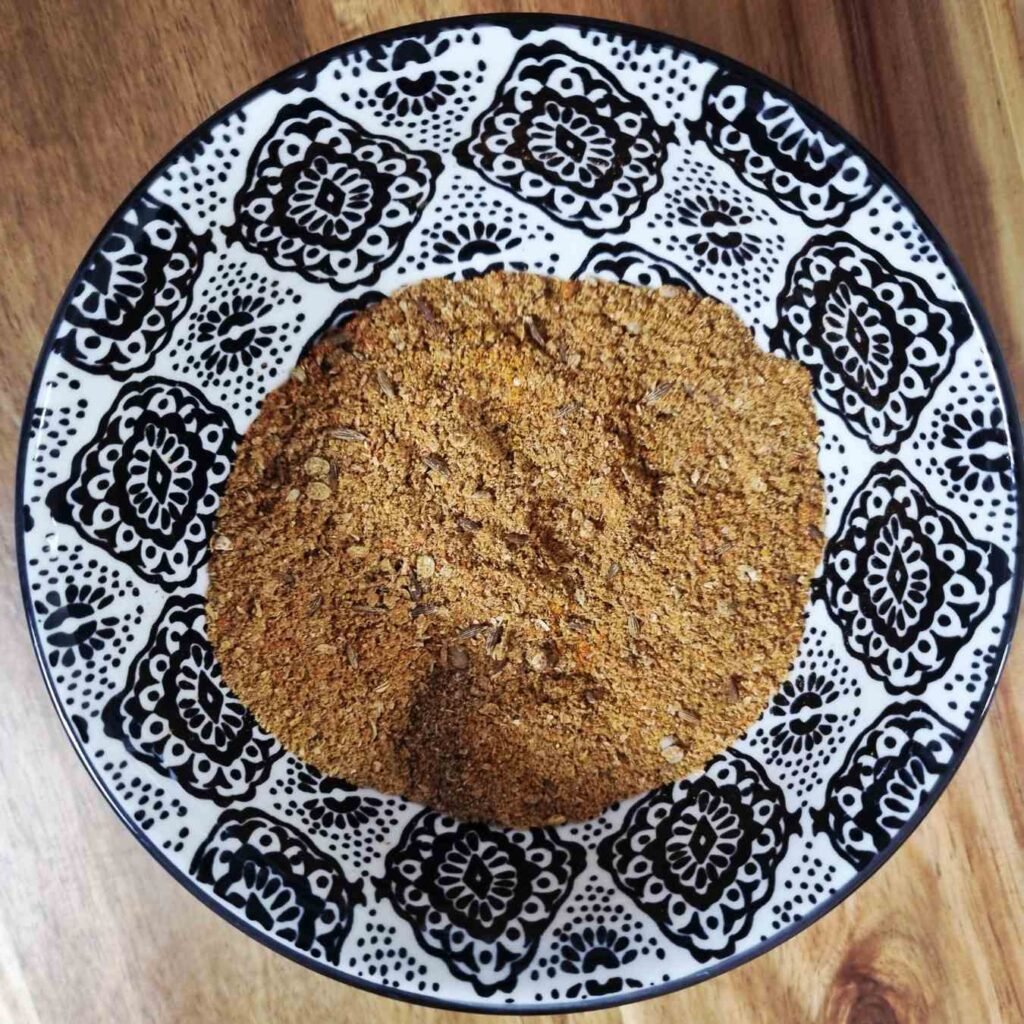
Spices such as cumin, turmeric, cinnamon, garam masala, and coriander add an earthy taste, making the gravy complex in flavour. A combination of fresh tomatoes and tomato paste will contribute depth to the gravy. Fresh herbs such as parsley add an herbaceous taste.
Roughly chop the onion and garlic cloves. Peel and cut the potatoes into one-inch cubes. Rinse and roughly chop the tomatoes. Rinse the lamb shoulders and cut them into chunky pieces about one-and-a-half inches cubes. Choose a neutral cooking oil, which will also allow the natural flavours of the lamb to shine through in this dish.
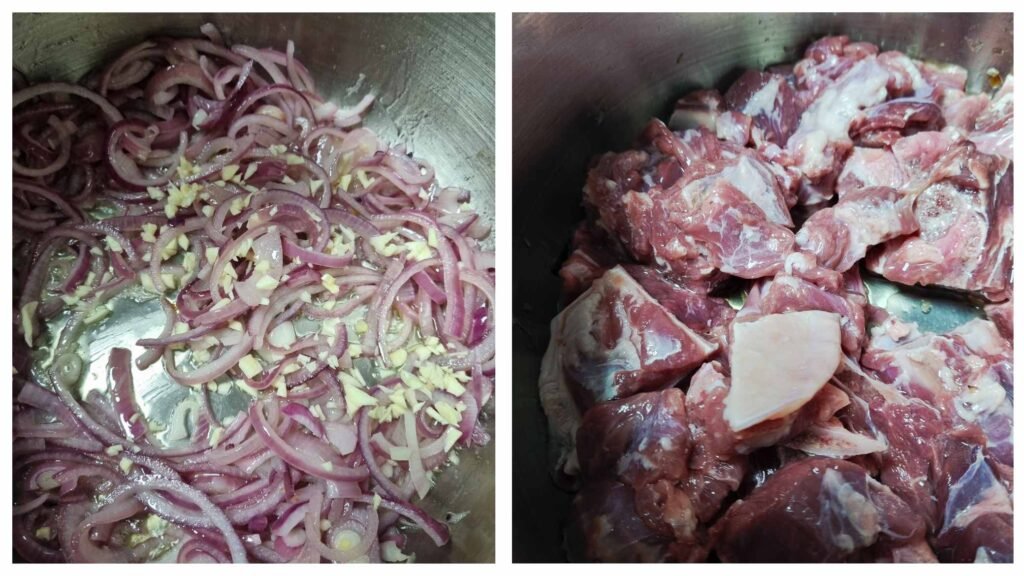
Add the chopped garlic and onion to the pot and sauté for eight to ten minutes on medium-low heat or until the onions start to brown. When the onions caramelize, remove the onions from the pot and set aside. Add the meat with 1/2 cup of water along with ginger and garlic paste. Simmer on medium-low heat for five to eight minutes.
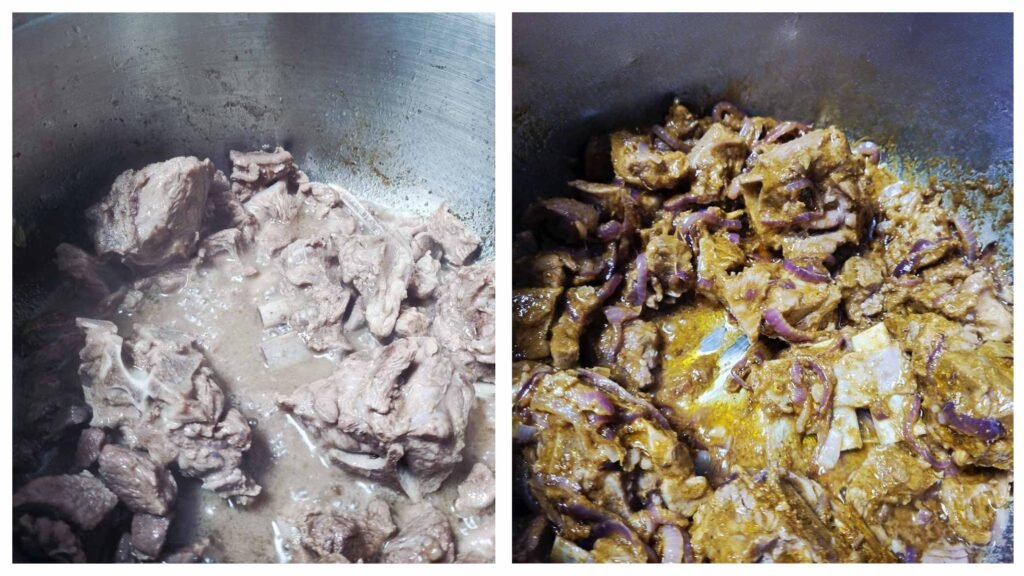
Add the caramelized onions into the pot of lamb with the spices. You can add a little bit more oil to the pot, the oil acts a medium to bring out the flavours of the spice. Stir to mix, and continue to cook the mixture for one minute while stirring.
Add the Tomato paste and mix, then add the potatoes. Add the grated tomato to the pot with three cups of water. Stir from the bottom up to mix all the ingredients.
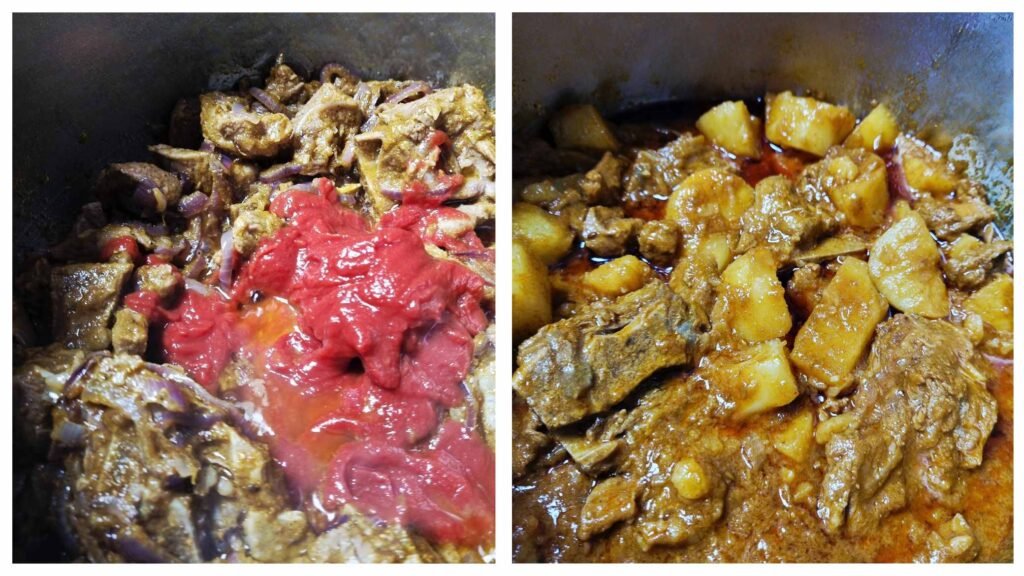
Bring the curry to a low simmer for sixty minutes and reduce the temperature to the lowest setting. Slow-cooking the curry for an extended period makes the lamb soft, juicy, and tender. Stir the pot every ten to fifteen minutes.
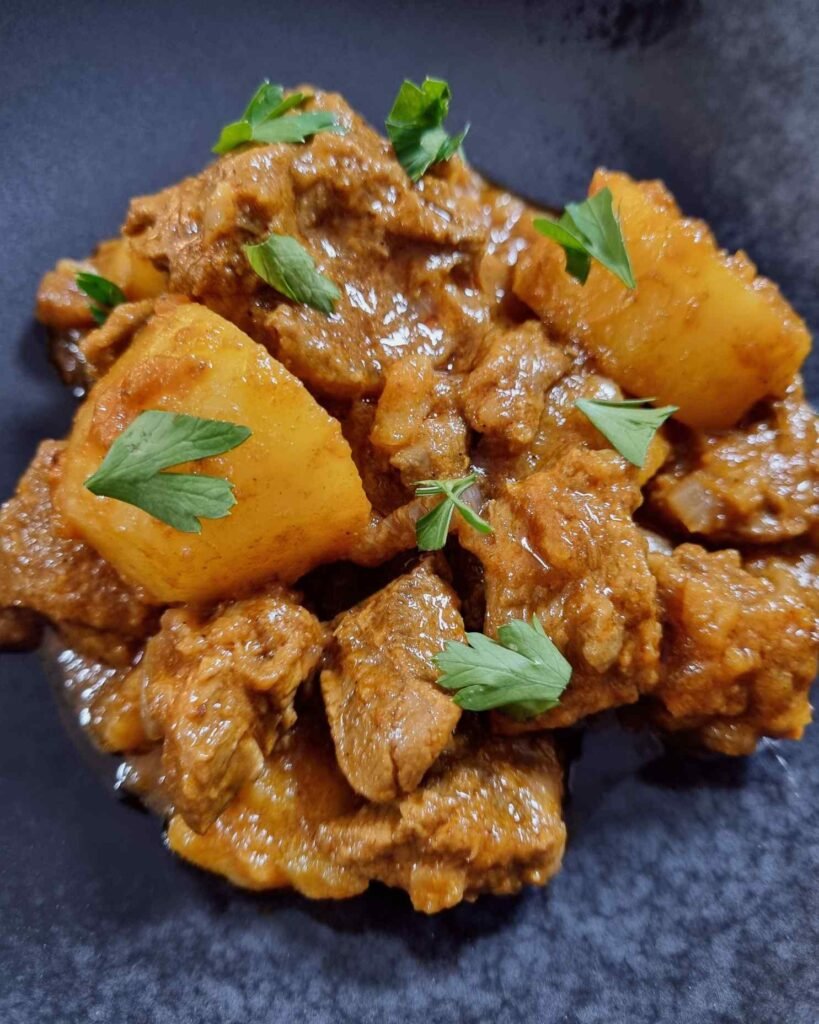
That’s it, the lamb curry is ready to eat and enjoy with your family. This recipe is a simple recipe that is rich in flavours.
Lamb curry pairs well with a number of different side dishes. Consider store-bought pickles such as Lemon, Chili, or Mango. A Red Pepper and Rocket Salad will add vibrancy to the dish. Other options include Basmati rice, Naan, Roti, or Paratha.
Store in an airtight container in the fridge for three to four days. Reheat gently on the stovetop. If the gravy dries up, add a little bit of water. Freeze for up to three months. Thaw in the refrigerator overnight prior to reheating on the stove. Do not reheat on high heat.
You can also make this curry with a combination of Lamb and Beef. If it is difficult to find lamb cubes in your supermarket, you can substitute with beef cubes. In parts of India, it is common to use buffalo meat or goat in this dish. If Chili powder is too spicy for you, substitute with a paprika powder or a combination of both chili powder and paprika powder.
Adding yogurt or coconut milk can also help reduce the heat. You can also cook this lamb curry in a slow cooker or a pressure cooker. It is essential to brown the onions and the lamb prior to adding to the pot. Slow cooking will produce a softer lamb. It should take approximately thirty minutes to cook a soft-texture lamb curry in the pressure cooker with potatoes.
